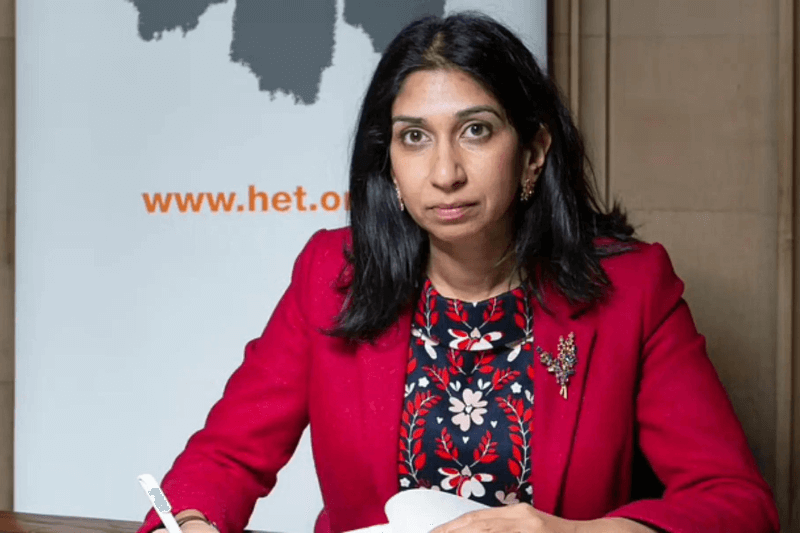
UK Home Secretary Suella Braverman Questions Role Of 1951 Geneva Convention
Speaking at the American Enterprise Institute in Washington, the UK home secretary recently questioned the role of the 1951 Geneva Convention, which defines refugee status.
Suella Braverman questioned the foundation of modern asylum law, arguing “simply being gay, or a woman” shouldn’t be by itself grounds for international protection.
With a general election due next year, which the opposition Labour Party is widely tipped to win, the ruling Conservatives have made the fight against illegal immigration a priority.
Is The 1951 Geneva Convention Fit For “Modern Times”?
The government’s stance against refugees is getting more hardline, with the Labour claiming the Conservatives are scapegoating vulnerable groups to distract from their own failings.
Braverman said the 1951 Refugee Convention was an incredible achievement for its time but added it’s up to political leaders to ask themselves whether the treaty is fit for “modern times”.
Keep Reading
According to the Human Dignity Trust, in 12 countries around the world, people can be put to death for having a same-sex relationship.
The home secretary said: “We will not be able to sustain an asylum system if in effect simply being gay, or a woman … is sufficient to qualify for protection.”
However, Yvette Cooper, of the Labour Party, accused Braverman of losing “grip of Tory asylum chaos” and of looking “for someone else to blame.”
Refugee Council Asks Britain To “Tackle The Real Problems”
Under the ruling Conservatives, the number of people in the UK asylum system has reached record levels, with experts accusing officials of failing to process applications in a timely manner.
In a statement, the Refugee Council said Britain should “tackle the real problems” and provide safe routes for people seeking protection rather than attacking the Geneva Convention.
Set up after the devastation of WWII, the international treaty established the rights and protections for refugees, aiming to offer sanctuary to those fleeing violence and persecution.




